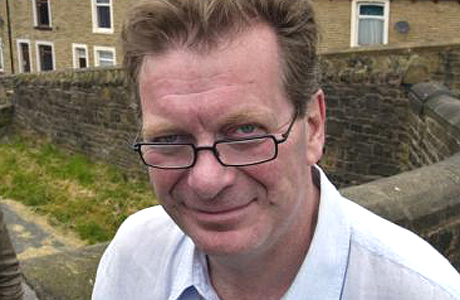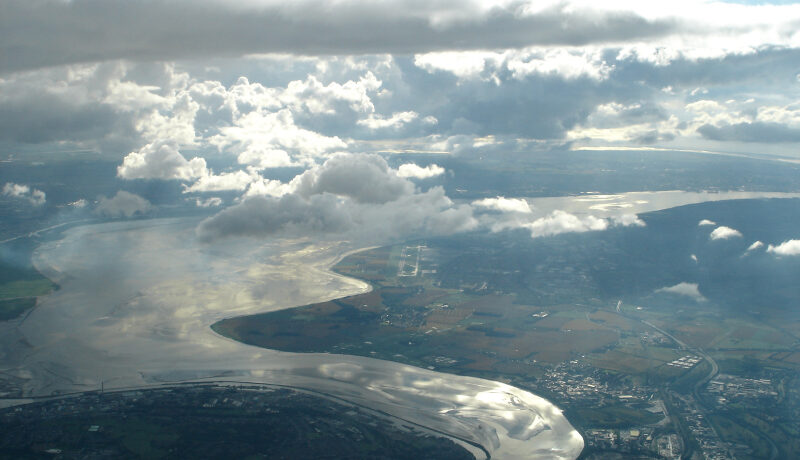Tony Wilson: The Mersey’s creative tide
 For one of the last pieces of writing Tony Wilson undertook before he died, the Manchester music legend and regeneration champion immersed himself in the musical history of Liverpool. Over the next three weeks we will be serialising his contribution to the forthcoming book Mersey: The River That Changed The World, published in December. This is part one. Part two: A heart that is rebellious; Part three: Dampness is all.
For one of the last pieces of writing Tony Wilson undertook before he died, the Manchester music legend and regeneration champion immersed himself in the musical history of Liverpool. Over the next three weeks we will be serialising his contribution to the forthcoming book Mersey: The River That Changed The World, published in December. This is part one. Part two: A heart that is rebellious; Part three: Dampness is all.
It was December 1963, and I can clearly remember the Hayes family front room and that 12-inch black and white object/trophy that seemed more important than that coming Christmas, more important than the death a few months back of the American President, more important than anything. And maybe it was. With its knowingly “art” sleeve, with its four moody head shots, it was, arguably, the first album. Yes there had been long playing records around for several years, there had been collections of singles and cover versions, but there hadn’t been a thing called “an album”; the world, my world had changed, and it was this black and white thing that had come down the East Lancs Road via the road called Abbey, that embodied everything that was new and exciting in our life.
Give Andrew Loog Oldham the credit for knowing the world had changed; he burst into the kitchen of the Chelsea flat where the Rolling Stones lived, waving this two tone icon in his hand; “Start writing songs lads.” “But we’ve just got these great new Chuck Berry tracks, Andrew.” “Screw that, start writing.” He knew history when he saw it. And this album, with most of the songs self-penned by Lennon and McCartney, was going to change everything.
With The Beatles, their second long playing record, their – and the world’s – first album, was history. The previous spring, in the school playground, we’d heard rumours that one of the sixth formers had a mate in Liverpool who was going to bring this new band over who’d just had a minor hit with a single called Love Me Do. Excitement rose as Please Please Me smashed into Number One. A visit from the Beatles. Too good to be true. It was. It never happened. But we were all in on the ground floor, poring over our transistors on a Sunday afternoon, so proud when She Loves You stayed at number one for a record number of weeks. As if it was us. But it was us. It was youth. It was our youth. It was the revolution. And it came out of the mouths and minds of these four young heroes from the other end of the A580. No longer was Liverpool the place to board the ferry to Douglas and the Isle of Man. It had become the centre of the world.
And the role of the port on the Mersey is mythically acknowledged as central to this great spark of creativity. Rock and roll was, is and always will be about influences flowing over and around each other and the constant and most vital influences are always Africa and Europe. By 1962, the epiphany kicked off in Memphis by Elvis Presley had waxed old and cold. Rock and roll had become East Coast high school pop; saccharine and empty. In Britain all you had was the low-cal Presley copies like Tommy Steele. But the undercurrent which inspired Elvis and his confreres, rhythm and blues, race music, was feeding the hearts and souls of a new British underground. And the steady drip of this raw, emotional, “new” music was travelling with the Gulf Stream, across the Atlantic.
I asked Mike McCartney about the role of the port in the late 50s, when passenger liners still made regular crossings to New York. He described this culture of R&B aficionados, a British working class version of Normal Mailer’s White Hipster, clutching their rare imported R&B recordings. He told me how Long John Baldry, a London blues singer, would make regular trips to see him and his brother and their mates and they’d all show off the latest sounds from the US, brought in for Baldry through the docks in the East End, while his new Liverpool chums would share their trophies acquired through those great docks on the banks of the Mersey.
Liverpool at the dawn of the 60s, a fresh vibrant youth culture based on the music of black America; and the chance to be top dog when you walk down the home gangplank. As Michael described these junior sea dogs, full of themselves ’cause “they’d heard these things before everybody else” I immediately thought of my first year at university and the Easter term of 1969. I knew people who knew people who were in the Oxford and Cambridge Drama Group, an occasional touring amalgam of the two universities’ aspiring theatricals. That Christmas they had taken Twelfth Night or some other Bill Shakespeare classic to New York. And there they had seen the movie, “Easy Rider”. My God, they were the kings of the King’s Parade. They had seen the film of films. They could say things like “far out” and “do your own thing in your own time” and they knew how it should sound. For three months they were princes amongst men.
Just like those sailors returning to the Mersey Estuary, laden with priceless gifts, not of frankincense and myrrh but of shellac and vinyl. And Paul and John ate them up, digested them and regurgitated a music that would change the world.
If you think of those first singles, they were centred on pop, with the R&B influence lurking only in the inspirational background. In fact it wasn’t until the fourth or fifth release, the Twist and Shout EP, that one got a real feel of the vibrant, shouty, blues background to this teen combo.
Many years later in the late 80s, a lovely old sound man at Granada called Gordon told me a story of how Johnny Hamp, planning a mini-documentary on two groups, a brass band and a beat-bunch called the Beatles, had taken Gordon to the Cavern with a tape machine. The piece never happened and it was in a studio session six months later, festooned with Liverpool Echo headline cuttings, that the fab four made their debuts. But Gordon told me he still had the tape and would I like to hear it. Would I?
Next day we go to the music library and Gordon puts on the tape. Cacophonous, messy, unbelievably loud and violent, well, noise. Unbearably exciting. And it reminded me of only one thing. The sound of the Sex Pistols that first night in Manchester on June 4 1976. Yes, it was that fucking amazing. I was shocked to the core. And delighted. As Mike said to me, “After Hamburg, they had really changed.”
And therein lies the sweet and bitter irony of cultural history, that without this great river and its great port, none of this happens. For without the 18th century’s noxious trade in brutalised humanity, there would never have been the blues and without those flattened seventh notes, no rock and roll. No life. No Beatles.
- Mersey: the river that changed the world is published by Bluecoat Press on 6 December; sponsored by United Utilities and initiated by the Mersey Basin Campaign.




